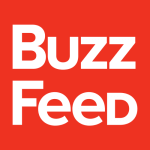
Below is a roundup of key stories in digital and public affairs for this week:
Content, Digital and Social Media
Facebook announced the hiring of Campbell Brown, a former NBC News correspondent and CNN prime-time host, to lead its news partnerships team. While Facebook indicated that she would not serve in a role as editor-in-chief, she would work as a liaison with news organizations so that Facebook can better meet their journalistic and business imperatives.
Snapchat announced the launch of universal search to simplify navigation on the platform. This move was clearly to ward off competition from Instagram’s Stories which has hit 150 million users. Instagram has now offered an advertising product on Stories that has the targeting capabilities offered in Facebook.
Medium, a platform for long form content, announced it was laying off a third of its employees, mostly in sales. CEO Ev Williams stated that Medium would be renewing its focus away from an ad-driven model to one that rewards writers “on their ability to enlighten and inform, not simply their ability to attract a few seconds of attention.”
Gov 2.0 and Public Affairs
On DigitalGov, Julia Jackson with the National Institutes of Health explores how social media platforms are becoming one-stop shops for information needs as the platforms become more feature rich and audience share falls away from search engines. Jackson recommends that federal agencies should refocus their attention on content created for social media in 2017 and use the platforms as one of their primary communication strategies.
In Social Media Today, Alan Rosenblatt talks about how public affairs organizations should consider self-publishing strategies to achieve their objectives. Once dismissed by professionals as less worthy than earned media, Rosneblatt argues that self publishing on your own website, blogs and social media is an effective strategy in achieving goals and can have greater impact than placing stories in the news media.
Speaking of effective, self-publishing strategies in public affairs, Associations Now reports on how the American Medical Association created a new content strategy that provided the framework for its website redesign. The new site is easy for its key stakeholders to navigate to content that is tailored to their needs.
Campaigns and Elections
Buzzfeed draws criticism for its publishing of a unverifiable secret dossier on President-elect Donald Trump and Russia. After its posting, BuzzFeed editor-in-chief, Ben Smith took to Twitter to explain how they made the decision. Smith stated that even though “there is serious reasons to doubt the allegations”, he noted that “publishing the dossier reflects how we see publishing in 2017”.
Writing in The Atlantic , staff writer, David Graham agrues that BuzzFeed sidestepped a basic principle of journalism in publishing the dossier. He argues that a reporter’s job is not simply to dump information into the public domain, but to gather information, sift through it and determine what is true and what is not.
On Federalist.com, lawyer turned writer Leslie Loftis argues that BuzzFeed’s decision to publish the dossier may lead to a defamation lawsuit. Loftis argues that BuzzFeed Editor in Chief Ben Smith’s rationale for publishing was the same rationale Rolling Stone’s Will Dana used to justify publishing a fake story that ended in a major court loss in Eramo v Rolling Stone.
On a side note, Nieman Labs reports on the success of BuzzFeed’s Tasty customized cookbook product which has sold enough copies to make it one of the best-selling cookbooks of the year. Tasty: The Cookbook, a choose-your-own categories, print-on-demand cookbook, sold over 100,000 copies in the last two months of 2016, earning BuzzFeed an estimated $2.4 to $4 million in sales.
These are some of the reads that matter to us for the week in digital and public affairs. What do you think? What are your favorite stories? We’d love to hear from you!
